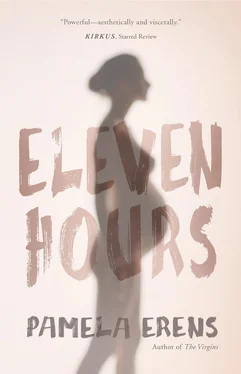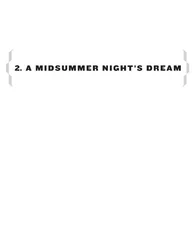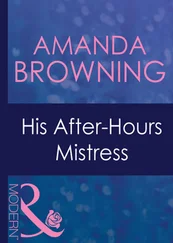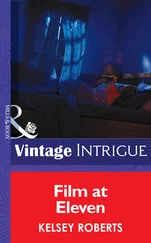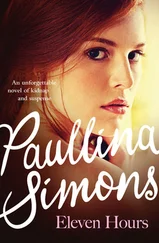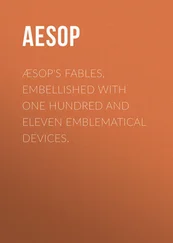Pamela Erens - Eleven Hours
Здесь есть возможность читать онлайн «Pamela Erens - Eleven Hours» весь текст электронной книги совершенно бесплатно (целиком полную версию без сокращений). В некоторых случаях можно слушать аудио, скачать через торрент в формате fb2 и присутствует краткое содержание. Год выпуска: 2016, Издательство: Tin House, Жанр: Современная проза, на английском языке. Описание произведения, (предисловие) а так же отзывы посетителей доступны на портале библиотеки ЛибКат.
- Название:Eleven Hours
- Автор:
- Издательство:Tin House
- Жанр:
- Год:2016
- ISBN:нет данных
- Рейтинг книги:4 / 5. Голосов: 1
-
Избранное:Добавить в избранное
- Отзывы:
-
Ваша оценка:
- 80
- 1
- 2
- 3
- 4
- 5
Eleven Hours: краткое содержание, описание и аннотация
Предлагаем к чтению аннотацию, описание, краткое содержание или предисловие (зависит от того, что написал сам автор книги «Eleven Hours»). Если вы не нашли необходимую информацию о книге — напишите в комментариях, мы постараемся отыскать её.
Eleven Hours
Eleven Hours — читать онлайн бесплатно полную книгу (весь текст) целиком
Ниже представлен текст книги, разбитый по страницам. Система сохранения места последней прочитанной страницы, позволяет с удобством читать онлайн бесплатно книгу «Eleven Hours», без необходимости каждый раз заново искать на чём Вы остановились. Поставьте закладку, и сможете в любой момент перейти на страницу, на которой закончили чтение.
Интервал:
Закладка:
At the funeral, which Lore had arranged — small: her mother’s family, awkward and treating Lore like a stranger; a smattering of work colleagues and neighbors — and paid for with money left for this purpose, she looked down at her mother’s face, relaxed of some of its characteristic lines, and thought that here lay the only person who would ever truly understand her, the only person she would ever care to be close to.
“We’re the same like that,” Julia told her, the day they’d met. “Both of our mothers are dead.” Julia told lies that had a certain poetic truth to them, and that she believed were true when she said them. Another time she claimed that as a child she’d gone blind for three months from hysteria, not wanting to see her parents fighting. (Asa, when asked, smiled and disputed the tale.) Julia and Lore were in the cafeteria at MoMA. It was a Friday evening in February, and Lore had been in New York City for six weeks. She was twenty-six years old and her mother had died in a final relapse in late November. It had been difficult to jump into her job midyear, to pick up the caseload that Mrs. Butler, injured in a car accident, had left behind. P.S. 30 was overheated, and by day’s end Lore was desperate to walk in the open air, even though the weather was bitter. She bypassed her subway stop and kept moving uptown, until she could feel her face stinging and her right hand — she had lost one of her gloves that morning — become numb. She stopped at a street vendor and paid four dollars for new gloves. Cutting west in the Fifties, she saw a line snaking out of the Museum of Modern Art and, when she asked what people were waiting to see, was told that it was a free-admission Friday. She got in line, joining the other shivering, jiggling bodies, grateful to have a reason not to go back yet to her apartment in the West 100s (also overheated, and shared with two impossibly messy recent college graduates, one of whom had two cats). The line moved slowly, and by the time she had gained entry to the museum she felt hungry. A look at the prices in the crowded cafeteria convinced her to stick to a cup of coffee. She asked a young woman with long, tightly curled hair if the empty chair next to her was taken. Julia shook her head and gestured that Lore should sit down. Her eyes, which blinked rapidly, were green. She was like a sea creature, sylph-like, somehow rippling and glittering. She was reading an expensive fashion magazine, which she put companionably aside.
“A speech teacher,” Julia breathed, upon asking what Lore did for a living, as if it were the most fabulous occupation she had ever heard of. “You help people, all day long.”
“Well,” said Lore, shy at the attention this elegant girl was paying to her. She allowed that she probably did help people — children, anyway. She felt good about her work. Julia said that she herself was useless, a painter, which was about the most selfish thing that anyone could be. She dabbed up the last crumbs of her croissant with her finger.
“Do you like it? What do you like about it?” she asked, and Lore, who hadn’t been asked this question since coming to the city (and had rarely been asked it before), found herself speaking about the pleasure of taking a child step by step through the necessary adjustments, the small changes of jaw and teeth and breath, that enabled them to be heard by the world. For every child you had to find the key; the exercises or instructions that helped one did not help another. You had to be intimate with them — to peer inside their mouths, place a finger on their gums. You had to touch their tender throats, test the vibrations at the backs of their necks. These were children who garbled their desires and their protests, and the grown-ups in their world did not listen to them as they should, because you do not listen well to someone who cannot be plain.
“Do you love them?” Julia asked, and this was something people never asked at all. Often they told her she must love children, to work with them so closely. Lore paused. She said she wasn’t sure. She liked them. She thought she’d loved a few of them, over time. She said that people who went on about how adorable children were never spent all day with them. Children were in fact ferocious little animals, sharp and canny and hurt and eager to inflict hurt themselves, who were trying to get what they needed in life. And she helped them to articulate those needs. That was why she did it. That, and because she seemed to have a knack for it.
Julia said: “I wish I could like children. But they scare me. They always seem to want something, and I don’t know what it is.”
It was like that, from the beginning: the way they spoke. Lore had never known anyone who behaved the way Julia did, who went directly to the important thing, and enabled you to talk about it too. So that you never wanted to go back to the ordinary type of conversation, which was all mask, all a way of never figuring out what really wanted to be said.
Lore listens for pain, feels nothing. She can sense, beyond the pale-yellow walls of the corridor, the deepening of late afternoon into dusk. She follows behind an older man in a neat polo shirt and trim slacks, tensing as they pass the desk at the end of Maternity, but the nurse there doesn’t look up fully, just buzzes both her and the man through. A sign tells her she’s in Radiology, and she stops to take in a large framed picture. A shoreline somewhere or other, gray-yellow rocks, pink-blue water. There are little flecks meant to be people at leisure: walking along the sand, wading into the surf. One of the flecks (she moves closer) is a mother bending down to hand a fleck child an ice cream cone. Lore’s mother had a picture much like it, though smaller, which she hung just inside the front door in each of their Hobbes Corners homes. She said if she had all the money in the world she would buy a beach house and lie in the sun all day. (Yet she never learned how to swim, never once went with Lore to the ocean.) Sentimental , Julia would have said of that picture — and of this one, too. Julia had strong opinions about certain kinds of paintings and movies and rooms. She despised easy beauty. Beauty, she said, should always have something ugly and off-kilter in it, something true. The paling sun in the picture is more than halfway down the sky; it is that moment in a long, hot day where the light cools and the sweat on one’s neck and shoulders dries, and one is sated and sleepy from the sun sunk deep into one’s bones. Lore leans in to see the name on the plate by the picture: Thomas Eddington, 1993.
After the cafeteria, Lore got to see the kind of art Julia liked. Not oceans and ice cream cones. Fifth floor, Austrian Expressionism: pictures by George Grosz and Otto Dix and Egon Schiele. A riot of thick paint, weird illumination, clashing colors. Egon Schiele looked out at Lore with the deep-bored, jutting-browed, demonic eyes of his self-portrait; there was something sinister in the tuft of hair just visible at his armpit. He clutched his skull; his white fingernails accused her. Julia was very still as she stood in front of each picture. Lore looked at Julia’s lovely face, her sloe eyes, next to the rabid reds and greens and purples of the canvases, and was visited with the knowledge that this was what Julia looked like inside, smeared and inflamed. She understood. She took Julia’s hand, squeezed it. Julia squeezed back. I have a friend, Lore thought.
“Ahoy!” calls some wag, a white-haired orderly trying to catch her attention; his stretcher needs to come through. Lore steps to the side to let pass a figure so covered up with sheets and scrub cap and tubing that Lore can’t tell whether it is a man or a woman. A woman, she decides. She drops her head in unconscious respect. One long-fingered hand, all knuckles and joints, rests atop the sheet; the rest of the form, glimpsed underneath, is tiny and emaciated. Is the woman alive or dead? Alert or sedated? As a child, Lore was fascinated by the story in a book of Greek myths about a young man who appealed to Hera for eternal life. Hera, malicious, granted his wish literally. He had asked for eternal life, but he had neglected to ask never to grow old. And so the years went by and the man aged; his back became bent, his skin discolored and sagged, his limbs shriveled and eventually gave way. Centuries passed and he became smaller and drier and more withered until finally he was no larger or sturdier than a grasshopper, and Hera brought him to Olympus and put him in a little cage, where he was forced to emit his dry rasps for her entertainment for eternity.
Читать дальшеИнтервал:
Закладка:
Похожие книги на «Eleven Hours»
Представляем Вашему вниманию похожие книги на «Eleven Hours» списком для выбора. Мы отобрали схожую по названию и смыслу литературу в надежде предоставить читателям больше вариантов отыскать новые, интересные, ещё непрочитанные произведения.
Обсуждение, отзывы о книге «Eleven Hours» и просто собственные мнения читателей. Оставьте ваши комментарии, напишите, что Вы думаете о произведении, его смысле или главных героях. Укажите что конкретно понравилось, а что нет, и почему Вы так считаете.
